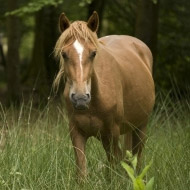
First equine expert meeting highlights areas of equine welfare that need addressing in Europe
A discussion between equine experts took place in Brussels yesterday as part of the European Commission’s first ever equine expert meeting, which drew clear conclusions about existing areas of equine welfare concern.
The meeting was welcomed by Eurogroup for Animals and World Horse Welfare as a significant step towards securing better equine welfare, health and consumer protection in Europe.
Those in attendance included representatives from the equine sector, member states and welfare organisations. It was concluded that there are several areas of welfare concern, most of which are pan-European and may need addressing at EU level. Areas included:
- Improved identification and registration
- Better education on keeping and training
- Bans on long distance transport to slaughter
- The need for humane slaughtering
- Effective law and enforcement
Reineke Hameleers, director of Eurogroup for Animals, said: “Our recognition that equines are in urgent need of better protection was confirmed by today’s expert speakers.
"Although horse welfare is managed well by organisations like the FEI through their own self-regulation it is clear that many more equines would benefit under the future Animal Welfare Framework Law or other dedicated harmonised EU legislation and implementation.
"This would ensure that actual law, soft law and educational efforts go hand in hand and significantly raise the quality of life offered to Europe's equines. Equines are unique animals and need unique protection.”
Working in partnership with World Horse Welfare, Eurogroup for Animals and its members along with all members involved in equine welfare will start a research process mapping the equine sector, the role of regulation and key-equine welfare and health issues.
This mapping will explore in more detail the areas of concern that have been raised, however its success depends on the contribution and quality of data available at member state level.
Results will be published in a report at the end of 2014 with clear and concrete recommendations. To watch the expert meeting click here.



 The Federation of Independent Veterinary Practices (FIVP) has announced a third season of its podcast, Practice Matters.
The Federation of Independent Veterinary Practices (FIVP) has announced a third season of its podcast, Practice Matters.